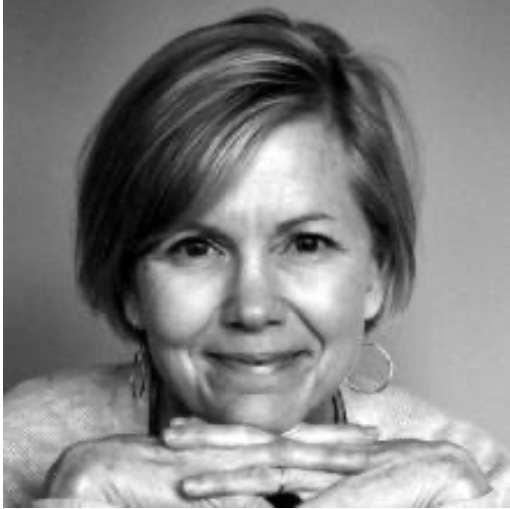The Gift of A Stranger's Story
May 24
/
Anne Lowry Pharr

A few months ago, Mary and I went on a morning walk. She is a longtime friend as well as a role model who is deeply committed to practicing inclusivity, diversity, and equity in her work. When she arrived at my house, two books--Howard Thurman's Jesus and the Disinherited and Lisa Sharon Harper's The Very Good Gospel--caught her eye. When Mary asked what I thought of the books, I commented that, had I encountered them a decade ago, I would have struggled to accept their ideas, worrying that they were too radical--too generous in their application of the gospel's good news. Today, though, I'm grateful for these strong Christian voices and how they encourage and challenge me to embrace a gospel that is audaciously robust.
"What made the difference?" Mary asked.
"Teaching American literature," I replied. "That's where I read authors like Harriet Jacobs, Frederick Douglass, W.E.B. DuBois, Paul Laurence Dunbar, Langston Hughes, Lorraine Hansberry, Gwendolyn Brooks, Ralph Ellison, Jamaica Kincaid, Alice Walker, Leslie Marmon Silko, Amy Tan, Lucille Clifton, and Sandra Cisneros. Their writing gives me an opportunity to learn from people whose lives and circumstances are different than mine."
Because so much of my identity connects with the dominant culture, I can tend towards "imagining the world moving around [me]" as if I and those who look and think like me are "at the center."1 Without taking time to "listen to [those] who live beyond the vale of whiteness," I am inclined" to interpret, organize, and narrate the world" according to my own limited perspective.2
This perspective can distort how I view those who may not look like me, act like me, or think like me. It can lead me to oversimplify them, to understand them as little more than stereotypes or caricatures. It can cause me to interact with them in ways that contradict a fundamental truth: every human being bears the divine image.
Years ago, a mentor explained the biblical truth of the imago dei this way: Every human bears a unique set of God's fingerprints. That same God created each one of us, loves each one of us, is reflected in each one of us, and longs to be in relationship with each one of us. There are no exceptions.
I didn't approach the activity of reading, teaching, and discussing literature as a spiritual formation practice. But my sense is that it is more than an academic exercise; it is also changing me.
Exploring the writing of those I may see as "the other" is helping me recognize assumptions that, for so long, hovered below my awareness.
Nudging me towards a stance of separate-ness, suspicion, or superiority, these assumptions can move me towards thoughts, words, and actions that communicate something far short of the gospel's audaciously generous welcome.
But making space to listen to and learn from them allows me to watch for every person's inherent, God-given value. Though often uncomfortable, it is how I can actively dismantle a decades-long "lack of recognition of the image of God" in each human being.3
The change is slow and imperfect, but my hope is that noticing these thinking patterns–and intentionally setting them aside—will allow me to give fuller attention to the actual person with whom I'm interacting, to engage with them in ways that reflect their unchanging, divinely bestowed worth.
If you feel drawn to this kind of reading, accepting the invitation can be simple. Maybe the first step is to find a piece by an author who differs from you in some way. Then spend some time--on your own, or with a few others--exploring life through that person's perspective, watching for the glimmers of God's image in them.
Christ's redemption is available to any body crafted by God, which is every body. That there is no person who does not reflect God's image has crucial implications for our interactions with each individual in our world.
As I practice receiving the gift of each stranger's story, my prayer is that I am being transformed–equipped and inclined to more fully convey with my eyes, my ears, my words, and my actions that "Yes, you are--without a doubt and absolutely--beloved. I see God's image in you. I welcome you."
1. Willie Jennings, "The Fuller Difference: To Be a Christian Intellectual," Fuller Studio Issue #4 (2015): https://fullerstudio.fuller.edu/wp-content/uploads/2015/08/fullermag-issue-four.pdf, 53.
2. Jennings, "The Fuller Difference," 53.
3. Lisa Sharon Harper, The Very Good Gospel: How Everything Wrong Can Be Made Right. (Colorado Springs: Waterbrook, 2016), 131.
"What made the difference?" Mary asked.
"Teaching American literature," I replied. "That's where I read authors like Harriet Jacobs, Frederick Douglass, W.E.B. DuBois, Paul Laurence Dunbar, Langston Hughes, Lorraine Hansberry, Gwendolyn Brooks, Ralph Ellison, Jamaica Kincaid, Alice Walker, Leslie Marmon Silko, Amy Tan, Lucille Clifton, and Sandra Cisneros. Their writing gives me an opportunity to learn from people whose lives and circumstances are different than mine."
Because so much of my identity connects with the dominant culture, I can tend towards "imagining the world moving around [me]" as if I and those who look and think like me are "at the center."1 Without taking time to "listen to [those] who live beyond the vale of whiteness," I am inclined" to interpret, organize, and narrate the world" according to my own limited perspective.2
This perspective can distort how I view those who may not look like me, act like me, or think like me. It can lead me to oversimplify them, to understand them as little more than stereotypes or caricatures. It can cause me to interact with them in ways that contradict a fundamental truth: every human being bears the divine image.
Years ago, a mentor explained the biblical truth of the imago dei this way: Every human bears a unique set of God's fingerprints. That same God created each one of us, loves each one of us, is reflected in each one of us, and longs to be in relationship with each one of us. There are no exceptions.
I didn't approach the activity of reading, teaching, and discussing literature as a spiritual formation practice. But my sense is that it is more than an academic exercise; it is also changing me.
Exploring the writing of those I may see as "the other" is helping me recognize assumptions that, for so long, hovered below my awareness.
Nudging me towards a stance of separate-ness, suspicion, or superiority, these assumptions can move me towards thoughts, words, and actions that communicate something far short of the gospel's audaciously generous welcome.
But making space to listen to and learn from them allows me to watch for every person's inherent, God-given value. Though often uncomfortable, it is how I can actively dismantle a decades-long "lack of recognition of the image of God" in each human being.3
The change is slow and imperfect, but my hope is that noticing these thinking patterns–and intentionally setting them aside—will allow me to give fuller attention to the actual person with whom I'm interacting, to engage with them in ways that reflect their unchanging, divinely bestowed worth.
If you feel drawn to this kind of reading, accepting the invitation can be simple. Maybe the first step is to find a piece by an author who differs from you in some way. Then spend some time--on your own, or with a few others--exploring life through that person's perspective, watching for the glimmers of God's image in them.
Christ's redemption is available to any body crafted by God, which is every body. That there is no person who does not reflect God's image has crucial implications for our interactions with each individual in our world.
As I practice receiving the gift of each stranger's story, my prayer is that I am being transformed–equipped and inclined to more fully convey with my eyes, my ears, my words, and my actions that "Yes, you are--without a doubt and absolutely--beloved. I see God's image in you. I welcome you."
1. Willie Jennings, "The Fuller Difference: To Be a Christian Intellectual," Fuller Studio Issue #4 (2015): https://fullerstudio.fuller.edu/wp-content/uploads/2015/08/fullermag-issue-four.pdf, 53.
2. Jennings, "The Fuller Difference," 53.
3. Lisa Sharon Harper, The Very Good Gospel: How Everything Wrong Can Be Made Right. (Colorado Springs: Waterbrook, 2016), 131.

Anne Lowry Pharr
A wife, daughter, sister, and mother of two adult children, Anne Lowry Pharr holds a B.A. and M.A. in English from Baylor University. In addition to serving as an English and First Year Seminar faculty member at Pellissippi State Community College, she was First Year Seminar program coordinator for many years and also collaborated with colleagues to develop Partners for Student Potential (PSP), a college-wide initiative which worked to deepen and broaden faculty and staff awareness of the challenges and strengths represented by college students.
Recently, she completed Renovaré's Institute for Christian Spiritual Formation, and she is currently pursuing the Companioning Center's Certificate in Spiritual Direction. Her writing has appeared at InterVarsity's The Well and Red Tent Living. Anne's passions include heartfelt conversations, writing, music, reading, exercise, Henry the havanese, and a great cup of coffee — preferably first thing each morning.
A wife, daughter, sister, and mother of two adult children, Anne Lowry Pharr holds a B.A. and M.A. in English from Baylor University. In addition to serving as an English and First Year Seminar faculty member at Pellissippi State Community College, she was First Year Seminar program coordinator for many years and also collaborated with colleagues to develop Partners for Student Potential (PSP), a college-wide initiative which worked to deepen and broaden faculty and staff awareness of the challenges and strengths represented by college students.
Recently, she completed Renovaré's Institute for Christian Spiritual Formation, and she is currently pursuing the Companioning Center's Certificate in Spiritual Direction. Her writing has appeared at InterVarsity's The Well and Red Tent Living. Anne's passions include heartfelt conversations, writing, music, reading, exercise, Henry the havanese, and a great cup of coffee — preferably first thing each morning.

